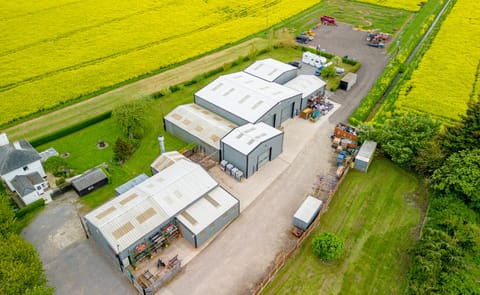Herbert Engineering, market leaders in handling systems for the agricultural, fresh pack and process industries, has added significant new features to their Oculus optical sorter, which will enable growers and packers to achieve superior quality product with increased accuracy in the detection of defects tubers.
Herbert’s Oculus is the latest optical sorter on the market and has been designed for growers, packers and processors. It features 360º rotation for all-round, improved vision and infrared as standard for superior performance in identifying and removing reject produce.
The new features, which Herbert has just introduced on the Oculus, enable users to identify three additional common problems that can lead to individual or batch rejections: clay cap, wireworm and jelly end rot (Solanum tuberosum). All are now visible using the Oculus analysis software and can be removed from the product stream.
The Oculus’ clay cap detector identifies clay caps on washed potatoes so they can be sent through the line again for re-wash or diverted for manual removal of caps. At a plant in Sweden, Herbert is achieving 85 – 90% identification.
The jelly end detector identifies the translucent flesh of infected tubers and ejects them accordingly. Commercially proven in Canada, this new feature has opened another key area of potential sales of the Oculus.
Andy Hubble, commercial manager at Herbert Engineering, said: “Sales of the Oculus have increased dramatically in the last few months with customers now seeing the major advantages in gentle, accurate and efficient sorting that the system can offer. The development of software to identify clay caps, wireworm and jelly end rot further improves the high quality of sorting provided by the Oculus and demonstrates our commitment to continuously improve this technology.
The Oculus also now features remote connectivity allowing operators touch screen information that can be viewed on any tablet device. This enables the operator to move freely around the machine making grading adjustments.










